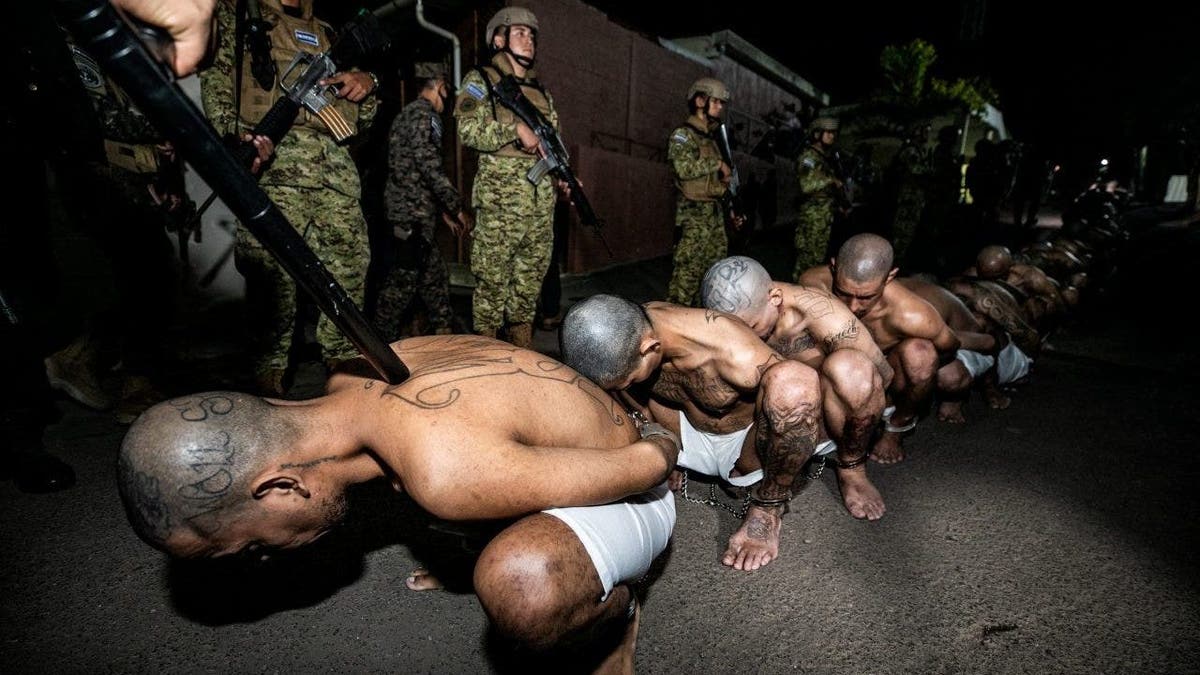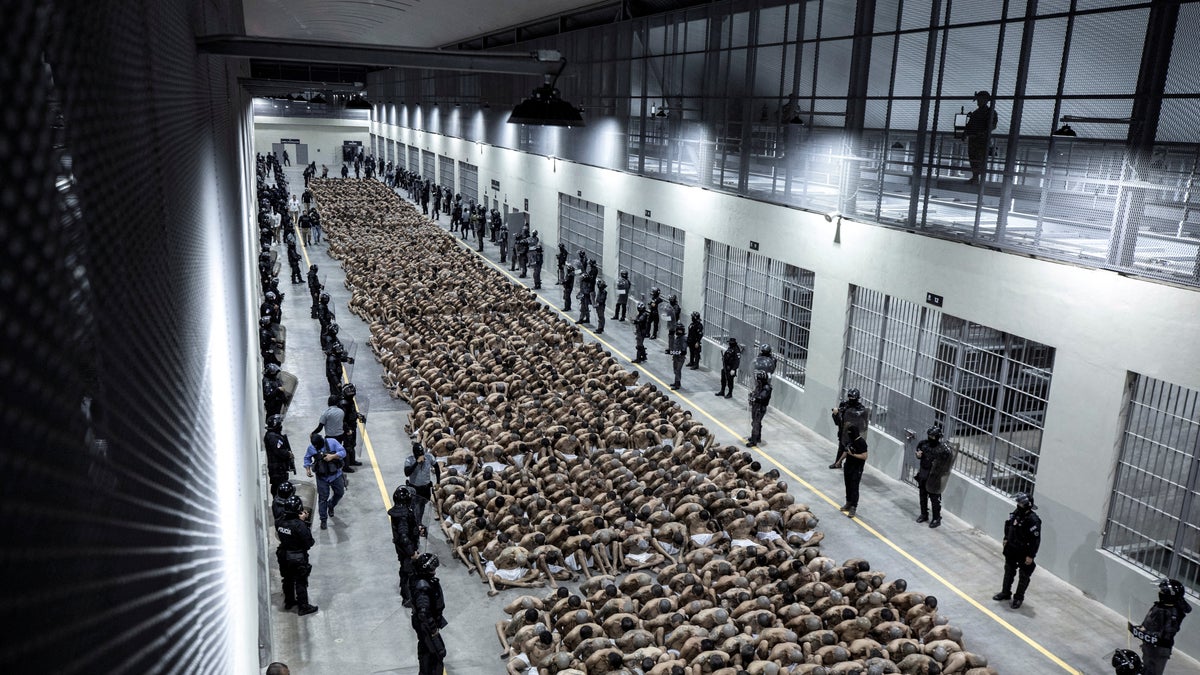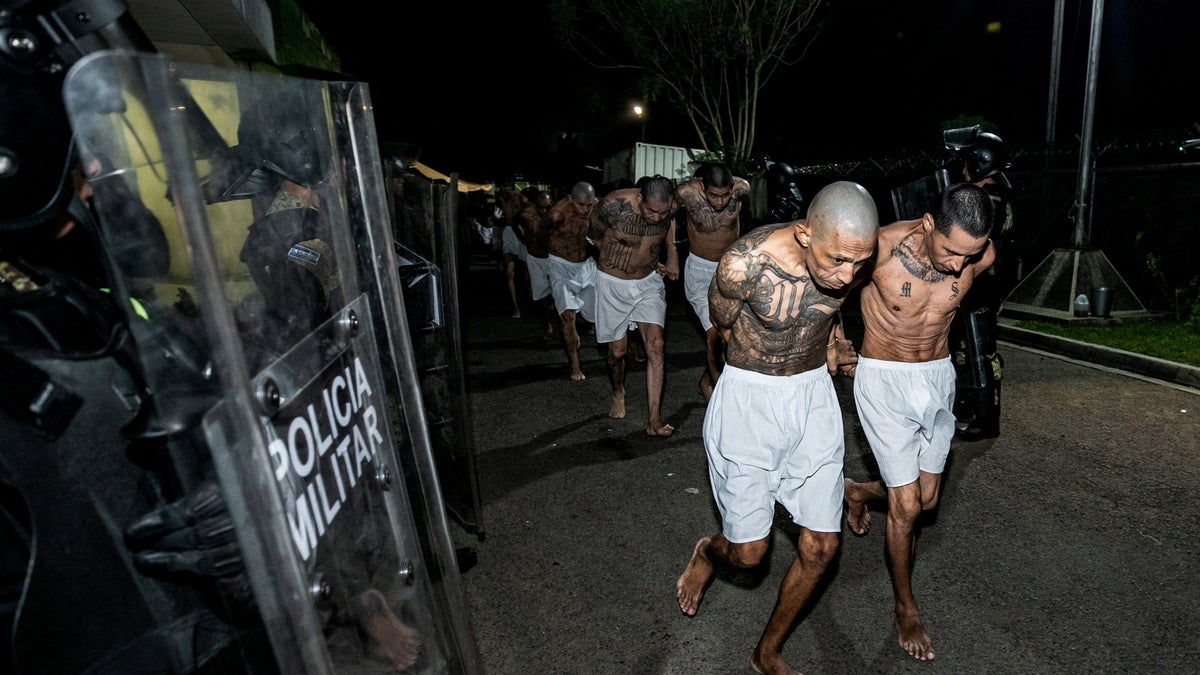El Salvador president visits new high-security prison for gang members
El Salvador President Nayib Bukele on Jan. 31 visited a new prison where gang members considered highly dangerous will be held. (Salvadoran government handout via Reuters)
El Salvador on Tuesday surpassed the one-year mark since the gang-ridden nation began cracking down on organized crime under an emergency-ordered anti-gang measure that was originally intended to last for just one month.
Monday marked the one-year anniversary since President Nayib Bukele ordered the crackdown following a particularly deadly day on March 27, 2022, in which 62 people were killed by gang violence.
Salvadoran lawmakers continued to renew the emergency powers each month, enabling the government to continue to crack down on gangs and arrest more than 66,400 people over the last year.

Gang members wait to be taken to their cell after 2,000 gang members were transferred to the Terrorism Confinement Center in Tecoluca, El Salvador, in this handout photo distributed to Reuters on March 15, 2023.
More than 4,300 of those arrested have since been released, and some human rights groups have flagged that the intense crackdown has led to 111 deaths of those incarcerated, along with more than 5,800 suspected cases of rights violations.
Despite the fact that some rights have been suspended for the sake of the purge, gang-related violence has dropped in El Salvador, which has long struggled to cope with expansive gangs like MS-13 and Barrio 18.
A recent poll suggested that the majority of Salvadorians approve of the government crackdown with eight out of every 10 poll takers across the nation giving it their stamp of approval.
Bukele championed the drop in homicides by taking to Twitter on Monday to say that the last homicide spike on March 27, 2022, was "one of the most difficult days of my life."
"Now, a year later, we closed with zero homicides, and March 2023 is on track to be the safest month in our history," he added.

Gang members wait to be taken to their cell in Tecoluca, El Salvador, in this handout photo distributed to Reuters on March 15, 2023. (Secretaria de Prensa de la Presidencia / Handout via Reuters)
'NEVER RETURN': EL SALVADOR LOCKS UP GANG-BANGERS IN NEW MEGA-PRISON WITH PROMISE OF NO RELEASE
Under the emergency order, police no longer need to inform the suspect why they are being arrested or to inform them of their rights. The detained individual also does not have a right to a lawyer and can be held for up to 15 days without seeing a judge, opposed to the previous 72-hour window they were guaranteed.
Telephone taps can also more easily be issued.
The Salvadoran government does not appear eager to reverse these special powers as they continue to crack down on gangs and crime.
Security Minister Gustavo Villatoro also told a local television channel that be believes not even 35% of the gang members spread across the country have yet been arrested.

Gang members wait to be taken to their cell after 2,000 gang members were transferred to the Terrorism Confinement Center in Tecoluca, El Salvador, in this handout photo distributed to Reuters on March 15, 2023. (Secretaria de Prensa de la Presidencia / Handout via Reuters)
CLICK HERE TO DOWNLOAD THE FOX NEWS APP
The conditions of Salvadoran prisons are notoriously poor with overcrowding as swaths of men continue to pour in — though the prison system may see some relief as El Salvador rolled out a new mega-prison specifically intended to hold up to 40,000 gang members earlier this month.
Human rights groups have repeatedly drawn attention to the harsh living conditions.
The Associated Press contributed to this report.









































